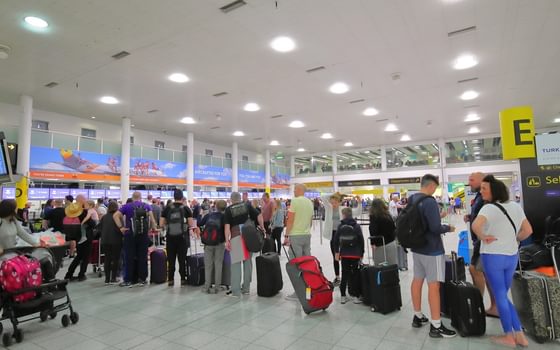Aberdeen: in tough times, whose job is it to plan for the future?
How can Aberdeen meet the challenges ahead?
09 September 2016
It’s no secret that Aberdeen is suffering right now, big time. The North Sea oil and gas industry estimates a net loss of 23,000 jobs by 2020, mostly in Aberdeen. The population of the city has fallen by a staggering 15% in the last two years. Silent building sites in the city centre lie stalled. Hotels are slashing their rates.
The blame for the short-term crisis has been put on the plunging oil price. Much of the North Sea’s oil – the source of the city’s industry and wealth for the last 40+ years – and by extension the workforce that produce it, is suddenly finding itself too expensive.
Of course it’s not as cut and dried as that. North Sea production has actually increased by about a third since the low of mid-2014, despite job losses – perhaps indicating that the price crash provided some cover to reduce costs.
But the bigger picture is clear: these are dark times for those who work in the industry and for Aberdeen itself. Production jobs in the UK aside, activity in this global oil city is tied to the vagaries of the oil price through all of the technical offices that support extracting oil from basins around the world, not just in the North Sea. But there’s little optimism that the cost of crude will bounce back any time soon.
And even if it does, what then? How long is it possible for any city to be so reliant on oil; come to that, on any one industry? Aberdeen’s wealth is supported by the continued production of a substance that our climate can’t tolerate and one that’s under increasing economic pressure from new technologies – like electric car batteries. That is to say nothing of the raw geopolitics of the oil price itself, with producer nations happy to suffer in the short-term to crash the financials of their competitors.
Decades of well-paid jobs has meant that the city as a whole is suffering from a kind of Dutch Disease: the profits from oil have made everyday life very expensive, sharpening inequality, and with rocketing house and workspace prices dissuading newcomers and entrepreneurs.
This isn’t just an Aberdonian problem, it’s a Scottish one: in the short term the nation’s GDP is flatlining, driven in large part by Aberdeen’s travails and their knock-on effects across the commuter economies and supporting industries across the North of Scotland. If a second independence referendum were to occur the narrative on oil’s relationship to the Scottish economy may need revisiting.
So what comes next? Unions and NGOs have called for a “just transition” away from oil and gas – a deliberate strategy of industrial transition with a focus on protecting those that will lose out.
Certainly there’s nothing ‘just’ about allowing an entire city’s economy to drop off the edge of a cliff, any more than it was to hang 1980s coal communities out to dry. And it’s not surprising that political interventions have largely focused on trying to claw the city back to its production heyday – countercyclical measures that may ultimately do little to help a structurally challenged industry. Yet while Dutch players in the North Sea are actively using their finite hydrocarbon revenues to develop other industries (decommissioning and offshore renewables), for UK firms ‘the prospect of a low carbon future was not on the agenda’, as PwC recently found.
Sure, it matters where your journey might take you, and which route you take to get there, but the first job is to agree to go on the journey in the first place. And if not now, in the midst of a crisis caused by the vicissitudes of the oil price, when can we start to talk about an Aberdeen that’s less dependent on the black stuff?
There are a number of decent papers that have been written (here’s one) for what an Aberdeen of the future might look like. Perhaps the easiest option could be for the city to become the centre of the global oilfield decommissioning industry. Or outside oil (but still in energy) there’s huge potential in the renewable energy industry, the hydrogen economy, or of renovating homes to make them more energy efficient.
And any transition is about more than energy alone. Certainly the city’s existing assets, like world-class conference centres, universities and more hotels than it currently knows what to do with, would give it a head start.
Ultimately this is a question for Aberdeen to answer. Councillors recently set out a 20-year plan for partially diversifying from oil and gas, but global fossil fuel expertise and skills were still tellingly at the heart of Aberdeen’s predicted prosperity. And there are other positive initiatives underway – like the focus on the hydrogen economy. Good people are trying to do good things. But perhaps to go further, there’s a limit to how much can be achieved ‘top down’. A vision to be owned; it has to feel like it’s ‘ours’.
Manchester may be a good example: Mancunians, not Whitehall mandarins, led the impressive and bold transformation of their city from its post-industrial doldrums. City-scale transitions like the move away from oil and gas, at whatever level you’re tackling them, are of course about plans and investment and political leadership, but also about visioning, engagement, and bottom-up dialogue.
A recent paper by E3G on successful industrial transitions concluded that long before thinking about worker support schemes or regional investment programmes, you need forums for dialogue. The German Energiewende – its programme to cut emissions by up to 95% by 2050, with a heavy bias towards small-scale, democratic energy systems – has always been popular with its citizens and remains so, but, crucially, it wasn’t ‘imposed’: it emerged in the first place from the federalised, green-minded, and anti-nuclear national mindset that settled over the last 50 years.
We’ve seen subsidies for more exploration and the ever-greater tax breaks for foreign-owned oil companies coming at a national level, but where are the advertising campaigns engaging people with the potential of a more resilient and sustainable city at a local level? It’s great that a few politicians, academics and NGOs are starting to talk about the issue, but their recent appearance is the relief that highlights the void. We looked, but couldn’t find the cultural events, and the local forums for dialogue to start the process. We wondered, where’s the energy that’s put into marketing Olympics or, for that matter, smartphones? Have we overlooked the community forums asking Aberdonians “what would you like Aberdeen to do next”?
The big challenge isn’t really to get the pumps pumping again: it’s to build a compelling national and local story. Something like: we’re going to get off oil and gas; it’s going to be just fine and doesn’t have to leave Aberdeen behind; and it’s something we’re all going to solve together. This won’t be easy and requires national leadership and the triggering of local verve. For now, there’s precious little of that coming from Scottish – or Westminster – politics.
Topics Climate change Energy Work & pay






